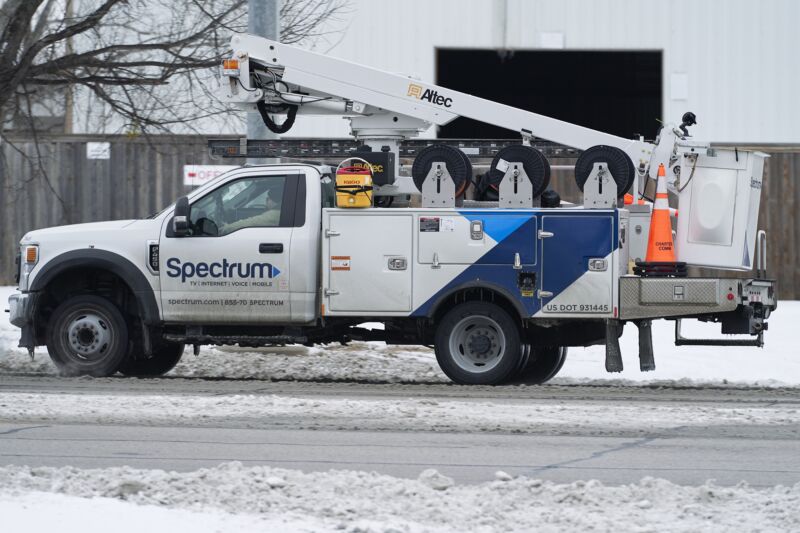
reader comments
47 with 45 posters participating
It’s no surprise that cable companies charge lower prices for broadband when they face competition from fiber-to-the-home services. But an article yesterday by Stop the Cap provides a good example of how dramatically promotional prices for Charter’s Spectrum Internet service can vary from one street to the next.
In this example, Charter charges $20 more per month for slower speeds on the street where it faces no serious competition. When customers in two areas purchase the same speeds, the customer on the street without competition could have to pay $40 more per month and would have their promotional rates expire after only one year instead of two.
Stop the Cap said it examined promotional offers to new customers in the metro Rochester, New York, market, “where Spectrum faces token competition from Frontier’s slow speed DSL service” and more robust competition in limited areas from Greenlight Networks’ fiber service. Greenlight fiber is available in 23 percent of Rochester, while Charter cable is available to homes throughout the city, according to BroadbandNow. Greenlight prices start at $50 per month for 500Mbps.
“Charter’s offers are address-sensitive,” Stop the Cap founder Phillip Dampier wrote. “The cable company knows its competition and almost exactly where those competitors offer service. That is why the company asks for your service address before it quotes you pricing.”
Dampier found that Charter offers 200Mbps service for $50 a month “[i]n neighborhoods where Spectrum enjoys a broadband monopoly.” Charter charges $70 for 400Mbps service in those same competition-free neighborhoods.
But “[j]ust one street away, where Greenlight offers customers the option of gigabit speed over a fiber-to-the-home network, Spectrum’s promotional prices are quite different,” Dampier wrote. On the competitive street, Charter charges only $30 a month for the same 400Mbps service that costs $70 nearby. As previously noted, customers on the noncompetitive street have to pay $50 for 200Mbps.
“Spectrum does not even bother offering new customers its entry-level 200Mbps plan in areas where it has significant fiber competition,” Dampier noted, referring to the promotional offers that pop up when you type in an address. “For $20 less per month, you get double that speed.”
For gigabit-download service, Charter charges $90 a month on the competitive street versus $110 on the noncompetitive street. These are the base prices without fees and taxes. Stop the Cap’s article included these screenshots from Charter’s promotional offers:
-
Charter prices on a street where the company faces no serious competition.
-
Charter prices on a street where it faces competition from fiber.
noted that AT&T was charging $40 more per month for gigabit service in cities without Google Fiber.
Charter has over 27 million residential Internet subscribers in 41 states, making it the second-largest home-Internet provider in the US after Comcast.
website says.
Charter’s upload speeds start at only 4Mbps. Its 200Mbps download plan comes with 10Mbps upload speeds, and the 400Mbps download plan comes with 20Mbps upload speeds. You have to buy Charter’s gigabit-download plan to get its highest upload speeds of 35Mbps, slower than Greenlight’s lowest upload rate. Despite years of promising higher upload speeds through upgrades to cable’s DOCSIS standard, Charter and other cable companies still lag far behind fiber in upload capabilities.
Disclosure: The Advance/Newhouse Partnership, which owns 13 percent of Charter, is part of Advance Publications. Advance Publications owns Condé Nast, which owns Ars Technica.






